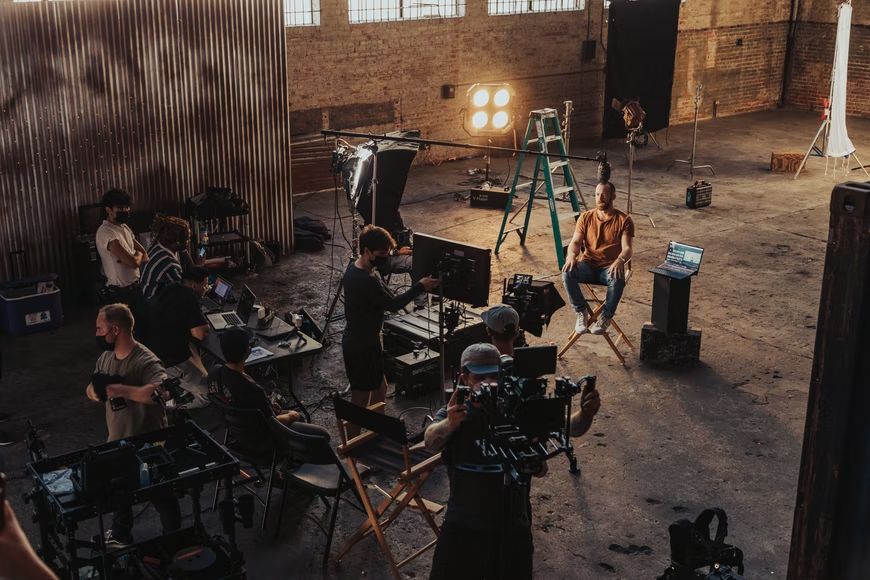Who Is a Decorator? Understanding Their Role in Design

When it comes to the world of design, few professions are as misunderstood or underestimated as that of the decorator. The term "decorator" evokes a range of images and misconceptions, from someone merely hanging pictures and coordinating colors to a professional capable of transforming spaces with a vision for aesthetics and functionality.
What Exactly Does a Decorator Do?

At the core, a decorator is an expert in the art of enhancing and adorning interior environments. Their responsibilities encompass:
- Color Scheme Selection: Determining the right palette that can affect the mood and ambiance of a space.
- Furniture and Layout: Arranging furniture in ways that promote conversation, comfort, and space efficiency.
- Material Choice: Choosing appropriate textiles and materials for curtains, cushions, and upholstery.
- Lighting Design: Designing lighting solutions that enhance the room's purpose and aesthetic appeal.
- Art and Accessories: Placing art, accessories, and decor to reflect the personality and style of the space's occupants.
💡 Note: A decorator's work often overlaps with interior design, but the focus tends to be on the cosmetic aspects rather than structural changes or planning.
Decorator vs. Interior Designer: What's the Difference?

The distinction between decorators and interior designers can sometimes blur, but there are key differences:
| Aspect | Decorator | Interior Designer |
|---|---|---|
| Primary Focus | Aesthetic and cosmetic enhancements | Overall design, functionality, and often structural changes |
| Training and Education | Varies; often learned through experience or short courses | Formal education in design principles, space planning, and sometimes architecture |
| Scope of Work | Furnishings, color schemes, surface treatments | Space planning, construction details, renovations, and sometimes project management |
| Regulation | Unregulated in most places | Regulated; must be licensed in some regions for projects involving structural changes |

The Role of a Decorator in Different Settings

Decorators operate in various settings, tailoring their skills to meet specific needs:
- Residential Decorators: Work on private homes, helping homeowners create living spaces that are both functional and reflect their personal taste.
- Commercial Decorators: Focus on office spaces, retail outlets, and restaurants, where the environment needs to facilitate business and appeal to customers or clients.
- Hospitality and Events Decorators: Specialize in temporary environments for weddings, conferences, or galas, where the design must be both functional and visually stunning for one-time events.
The Qualities of a Great Decorator

To excel in this field, a decorator needs to possess:
- Strong Aesthetic Sense: An eye for beauty, balance, and visual harmony.
- Communication Skills: The ability to understand clients' needs and translate them into tangible designs.
- Attention to Detail: Noticing every element in a space and how they interact with each other.
- Resourcefulness: Finding unique solutions within budget constraints.
- Project Management: Ensuring projects stay on time, within scope, and under budget.
💡 Note: Great decorators are not just creative; they are also problem-solvers and good listeners, blending their artistic vision with clients' practical needs.
The Impact of a Decorator on Your Environment

The role of a decorator extends beyond mere decoration. Here's how they can influence your living or working spaces:
- Enhance Functionality: Through layout and storage solutions, decorators can make spaces work better for their intended purposes.
- Boost Mood and Productivity: A thoughtfully designed space can significantly affect mood, stress levels, and productivity in both personal and professional settings.
- Reflect Personality: Spaces are personal expressions; decorators help bring out the unique characteristics of the occupants through design.
- Create a Theme: Whether it's a coastal retreat or an industrial loft, decorators craft environments that embody specific styles or themes.
To wrap up, decorators are not just about creating pretty spaces; they are about transforming environments to enhance people's lives in tangible ways. Their work influences how we live, work, and feel in our daily environments, often in ways we might not fully appreciate until we see the results. By understanding their multifaceted roles, we can better value their contributions to the design field and our personal spaces.
What is the main difference between a decorator and an interior designer?

+
The primary difference lies in the scope of work. Decorators focus on aesthetic enhancements, like choosing furniture, colors, and accessories. Interior designers often work with architectural plans, space planning, structural changes, and might need to be licensed for certain types of projects.
Can I hire a decorator for my small business office?

+
Yes, many decorators specialize in commercial spaces, including offices. They can design environments that promote productivity, reflect your brand identity, and make a welcoming impression on clients or customers.
How much should I expect to pay for a decorator?

+
The cost varies widely based on factors like location, project scope, experience of the decorator, and whether they charge by the hour or per project. Typically, decorator fees can range from a few hundred to several thousand dollars for a comprehensive design service.



